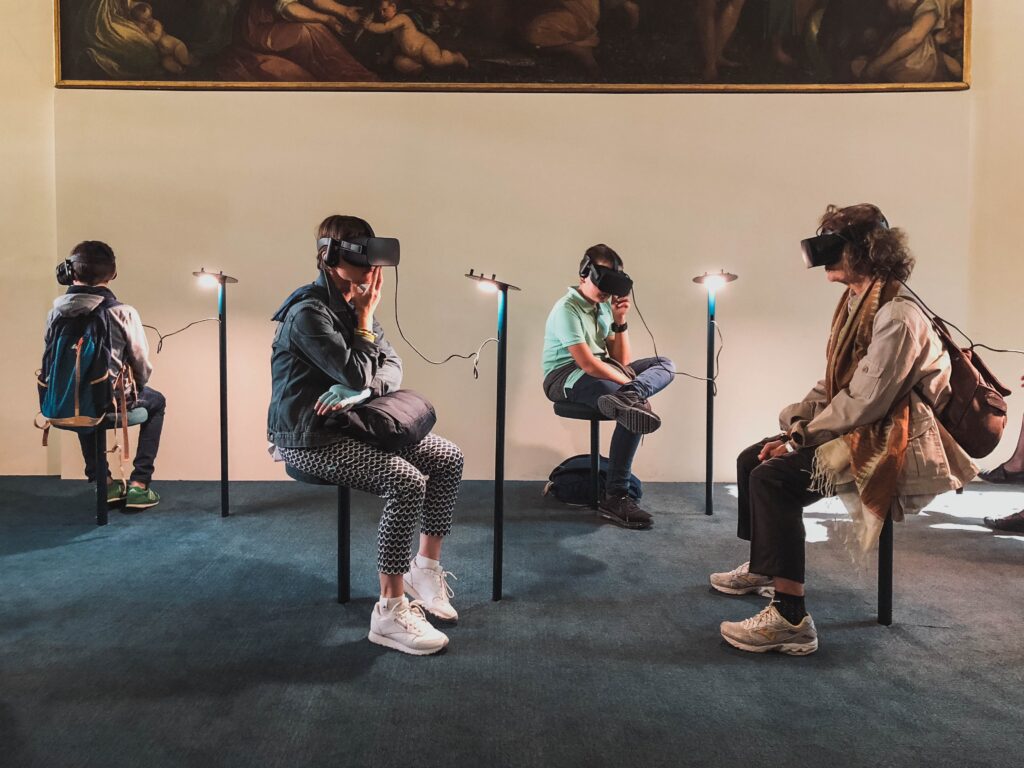Withdrawing from Socialization, Escaping into Online Worlds
The COVID lockdowns beginning in 2020 were likely to exacerbate growing tendencies for people to remain in their homes, eschewing socialization in favor of spending time online with social media, video games, and streaming entertainment. As written in Scientific American, COVID threatens to bring a wave of hikikomori to America. “Hikikomori, a syndrome of extreme social isolation originally found in Japan that described primarily young men who confined themselves at home rather than attend school or go to work.”
Video games, social media, and TV are all popular pastimes for the Swiss as well. In Switzerland, a total of 65.4 percent of the population played video games at least several times a year in 2021 – almost a third of the Swiss play several times a week or every day.

The Continuing Trend of Living Life Online
Living life online has been a growing trend, particularly for young people. Jean M. Twenge, professor of psychology at San Diego State University, has been researching generational differences for decades. “Around 2012, I noticed abrupt shifts in teen behaviors and emotional states… The allure of independence, so powerful to previous generations, holds less sway over today’s teens, who are less likely to leave the house without their parents.” Jean describes how teens are substantially less likely to date, drive, and work for money outside of the digital world.
Is the growth of the metaverse merely a continuation of the decline of in-person socialization? Are we on the path to where virtual worlds will dominate our existence?
In the movie “The Matrix,” machines enslaved humans. Unbeknownst to most humans, all of their experiences occurred only in a sophisticated virtual world. Will the metaverse be similar, with the exception that people voluntarily forsake reality for a virtual world? I must confess, I find the idea repellant.

Is Virtual Socializing Actually Socializing?
Simon Hohler, technical consultant at Ewasoft, explained that the metaverse, “Can be a medium of connection. For example, when people can’t visit loved ones in person, either due to distance or illness, the metaverse can provide users an experience of presence that is deeper than a mere phone call, or even video chat.”
Dr. Alen Lipuš, PhD, R&D Manager @ Pro-Bit, stated, “There’s nothing better than physical touch, but the metaverse is the next best thing.”
The question “Is virtual socializing actually socializing?” was examined in a two-year project led by the University of Exeter. Researchers found that, “training older people in the use of social media improves cognitive capacity, increases a sense of self-competence and could have a beneficial overall impact on mental health and well-being.” Participants engaged more in social activity, and particularly enjoyed connecting with friends and relatives via video chat and email.
When Virtual Reality is Real
Virtual reality is often considered not “real.” Virtual events and meetings refer to interactions taking place online via video conference. From knitting classes and book clubs, to dance workouts and happy hours, virtual events proliferated during 2020.
Remote participation in meetings has been a valuable option prior to the Covid-19 pandemic and remains a key tool for business collaboration. Many businesses hold remote meetings with potential new clients, land the account, serve the client, and earn revenue all without ever meeting in person. (On a personal note, I’ve been collaborating with Kingfluencers’ Co-CEO Yoeri since 2018 and have never met him in person.)

The connection and value delivered are no less “real” for the meetings having occurred virtually. Likewise, when seeing the smiling face of a dear friend via Zoom, the love we feel is no less real and powerful. The intentions behind our interactions are the same, as are most of the outcomes.
Should Brands be in the Metaverse? (If it Actually Exists…)

A recent article in The Drum made the case that the metaverse doesn’t actually exist (and emphatically so, I might add.) As we wrote in The Metaverse Part 3, metaverse is defined as, “a virtual-reality space in which users can interact with a computer-generated environment and other users.”
The author repeated the point that such virtual reality spaces do currently exist, but within games, and therefore “the metaverse” as a distinct entity does not exist.
What Should Brands Do? Balance the Innovative with the Accessible
Dr. Lipuš recommends brands, “Try to do something meaningful and practical, and don’t just follow some buzz.” Buzz can distort both the real opportunities and the risks. This may be the case with NFTs.
While it’s tempting to want to make use of novel technologies to thrill customers with unique promotions, there can be downsides. In particular, blockchain and NFTs are still complex, and many consumers aren’t ready to overcome the hurdle. When considering an innovative promotion such as NFTs, you should also know how familiar they are with that tech.
Mr. Hohler states, “There’s still a high barrier of entry for users and using NFTs is somewhat difficult. Users must come to a site, install their crypto wallet, and make purchases with crypto currency on an exchange, which includes doing ‘Know Your Customer’ identity verification. However, this is all changing very fast, on a daily basis. We advise brands to make their promotions easy to understand.”
Mr. Hohler predicts that the role of NFTs will grow. “I believe in the future we’ll all prove ownership of items such as real estate and cars by owning an NFT in our bitcoin wallets.”

Frontrunners and Trendsetters
Brands, consumers, and influencers can build new and endless variety of interactions in the metaverse. Hospitality businesses can offer VR excursions and fashion brands can sell virtual accessories.
Far beyond B2C and B2B businesses, the metaverse can be used by NGOs and healthcare organizations. Interactions during tutoring orvirtual therapy can be enhanced with the deeper connection the metaverse can deliver.
Set a Positive, Healthy Direction Now
With the current state of the metaverse, the risks we’ve addressed remain theoretical. Although looking at other parallels, we should expect these risks to grow, but there is time to prepare.
Far beyond B2C and B2B businesses, the metaverse can be used by NGOs and healthcare organizations. Interactions during tutoring orvirtual therapy can be enhanced with the deeper connection the metaverse can deliver.
Now is the time to take steps to build a healthy environment, impeding the growth of the negative.
Organizations and associations, such as the Conscious Influence Hub (CIH), can play a role in setting the direction and advising. Based in Switzerland, CIH is a non-profit NGO with a mission of “promoting the core values of respect, empathy, and transparency in the social media influence sphere.” Working together, Kingfluencers and CIH launched a Code of Conduct with best-practice guidelines, including being a role model for empathy and respect, and dealing with sensitive issues in a particularly responsible way.
Finding Balance in the Future – Anything in Moderation
Human beings require physical exercise to stay healthy, as well as some doses of sunlight. Remaining indoors, particularly sedentary, seated in front of a screen, is a recipe for a myriad of illnesses.
However, embracing the metaverse doesn’t have to mean abandoning other active pastimes, any more than eating a cookie means we no longer eat vegetables. Additionally, unlike traditional social media platforms, people can engage physically with the metaverse, with activities such as standing to ride a surfboard after sipping a Corona beer. Physical movement can provide health and fitness benefits to users, while also deepening the connection with brands.

Balance is key.
With a mix of the metaverse and reality, we will have the capacity to live life more intensely, making a variety of deeper connections on a global scale. The distinction between online and IRL will become smaller as people strive for balance.
Check out our blog and follow Kingfluencers for our upcoming articles.
Author: Megan Bozman, Owner @Boz Content Marketing

